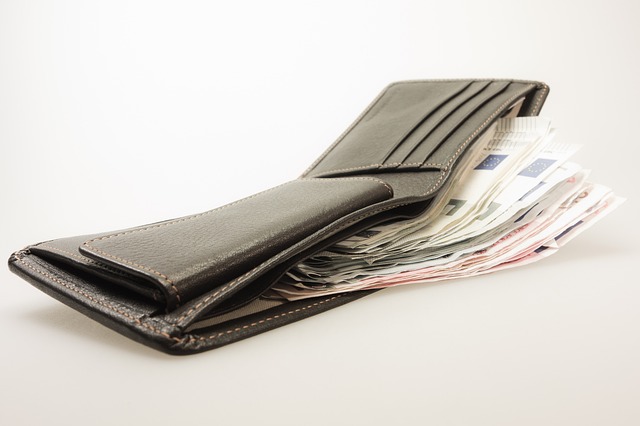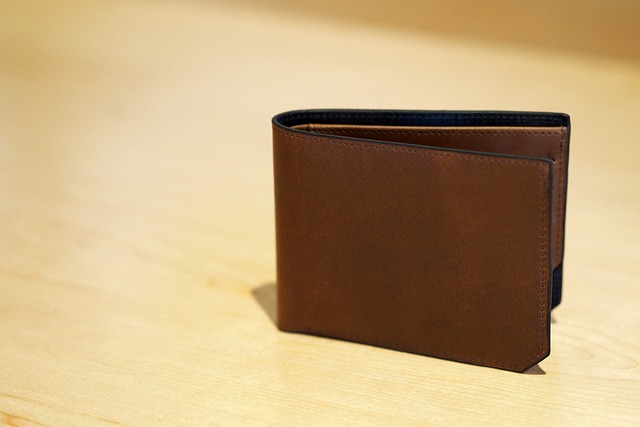Mastering Crypto Wallets: Your Path to Secure Digital Wealth
Author: Jameson Richman Expert
Published On: 2025-04-20
Prepared by Jameson Richman and our team of experts with over a decade of experience in cryptocurrency and digital asset analysis. Learn more about us.
Understanding crypto wallets is essential for anyone looking to dive into the world of cryptocurrency. A crypto wallet is a tool that allows users to store and manage their digital currencies securely. From my own journey navigating through various wallets, I learned that choosing the right one can significantly impact your trading experience and asset protection. This article will delve into the different types of crypto wallets, their functionalities, and how to select the best one for your needs.
When I first entered the crypto space, I was overwhelmed by the multitude of options available. I tried several wallets, from hardware to software and even mobile wallets, but faced numerous challenges along the way. Each type of wallet has its own set of features, and it wasn't until I experienced the pitfalls of insecure wallets that I understood the importance of this decision. In this comprehensive guide, I’ll share my experiences and insights to help you avoid the mistakes I made and find the right crypto wallet for your needs.

Understanding the Types of Crypto Wallets
There are primarily three types of crypto wallets: hardware wallets, software wallets, and paper wallets. Each has its own pros and cons, which I'll explain in detail.
1. Hardware Wallets
Hardware wallets are physical devices that securely store your cryptocurrencies offline. They are considered one of the safest options available due to their offline nature. Examples include Ledger Nano S and Trezor. My first attempt at using a hardware wallet was with a Ledger, and I found it to be secure but a bit cumbersome for daily transactions. However, the peace of mind it provided was worth the trade-off.
Hardware wallets typically use a secure element chip that prevents unauthorized access, making them resistant to malware attacks. They often come with recovery seed phrases, allowing you to restore your wallet if the device is lost or damaged. If you frequently conduct high-value transactions, investing in a hardware wallet is advisable for enhanced security. It's worth noting that while hardware wallets are highly secure, they are not entirely risk-free. Users must remain vigilant against physical theft and ensure that they purchase devices from reputable sources to avoid counterfeit products.
Furthermore, hardware wallets can support multiple cryptocurrencies, making them versatile options for investors who diversify their portfolios. When purchasing a hardware wallet, consider the ease of use, compatibility with various digital currencies, and additional features such as built-in exchanges or security tokens. Popular models like the Ledger Nano X also offer Bluetooth functionality for mobile use, enhancing convenience without compromising security. Additionally, users should regularly check for firmware updates to maintain the highest security standards.
2. Software Wallets
Software wallets can be divided into desktop, mobile, and online wallets. Desktop wallets are installed on your computer, while mobile wallets are apps on your smartphone. Online wallets are hosted on the cloud, making them easily accessible. During my early days, I used a popular online wallet, which unfortunately got hacked, resulting in the loss of some of my assets. This experience taught me that while convenience is essential, security should always be a priority.
Software wallets often offer user-friendly interfaces and quick access to your funds, making them ideal for everyday transactions. However, they are more vulnerable to hacking than hardware wallets since they are connected to the internet. It’s crucial to choose reputable software wallets, such as Exodus or Electrum, and implement additional security measures like two-factor authentication (2FA). Furthermore, some software wallets allow users to connect to decentralized applications (dApps), enhancing their utility within the blockchain ecosystem.
Moreover, many software wallets provide features like transaction history, portfolio tracking, and built-in exchange services, making them appealing for users who prefer an all-in-one solution. Always remember to read reviews and conduct thorough research to select wallets with a good security track record. Additionally, features like multi-currency support, user education resources, and customizable settings can enhance your experience and help you become more adept at managing your digital assets. Regularly backing up your wallet data and storing it securely can prevent loss due to hardware failures or other unforeseen issues.
3. Paper Wallets
Paper wallets are a physical printout of your public and private keys. They are considered one of the most secure forms of storing cryptocurrency since they are completely offline. However, they can be easily damaged or lost. I once created a paper wallet but mismanaged its storage, which caused me to lose access to my funds temporarily. Learning how to securely generate and store a paper wallet is crucial if you decide to go this route.
To create a paper wallet, use a reputable paper wallet generator and ensure you do so in a secure environment, preferably offline. After generating your keys, print them and store the paper in a safe place, such as a safe deposit box. However, be mindful that if the paper is damaged or lost, you may permanently lose access to your funds. To mitigate this risk, consider creating multiple copies of your paper wallet and storing them in different secure locations.
It's essential to highlight that paper wallets can be susceptible to physical damage from water, fire, or other environmental factors. Therefore, using durable materials, such as metal wallets that can withstand elements, may be a more secure choice for long-term storage. Additionally, if you choose to create a paper wallet, consider using a secure method to print it, such as using a printer that is not connected to the internet to avoid exposure to malware. The combination of offline generation and secure storage can greatly enhance the safety of your funds. Moreover, keeping a digital record of your wallet's public key can provide a backup for tracking your assets without compromising security.
Choosing the Right Crypto Wallet
Selecting a wallet that meets your needs is crucial. Here are some factors to consider:
- Security Features: Look for wallets with strong encryption and backup options. Some wallets offer multi-signature support, which requires multiple keys to authorize a transaction, adding an additional layer of security.
- User Experience: Choose a wallet that you find easy to navigate, as a complicated interface can lead to mistakes in managing your assets. Look for wallets that provide educational resources or tutorials to help you get started.
- Compatibility: Ensure the wallet supports the cryptocurrencies you intend to store. Some wallets only support a limited number of coins, while others provide a broad range of options, including lesser-known altcoins.
- Community Reputation: Research user reviews and community feedback about the wallet. Established wallets with a good track record are generally more reliable. Additionally, look for wallets that have undergone third-party security audits, which can provide an extra layer of assurance.
I once overlooked community reputation, which led me to a wallet with several user complaints regarding its security. After experiencing a minor issue myself, I switched to a wallet with a solid reputation, and it has served me well ever since. Always remember that the crypto community is a valuable resource for insights and recommendations. Engaging in forums or social media groups can provide you with real-time feedback on wallet performance and updates. Additionally, participating in community discussions can help you stay informed about the latest security practices and wallet features. Also, consider the responsiveness of the wallet's customer support, as this can be crucial in times of technical difficulties.
Secure Your Wallet: Best Practices
After settling on a wallet, securing it is paramount. Here are some best practices I've found useful:
- Enable Two-Factor Authentication (2FA): Always enable 2FA for an added layer of security. This makes it much harder for unauthorized users to gain access to your wallet.
- Keep Your Software Updated: Regular updates help to patch vulnerabilities and enhance security features. Make it a habit to check for updates frequently.
- Backup Your Wallet: Regular backups can prevent loss due to hardware failures. Store backups in multiple secure locations and consider using both digital and physical forms of backups.
- Be Wary of Phishing Scams: Always double-check URLs and never click on suspicious links. Use bookmarks to access your wallet instead of typing URLs directly. Consider using a password manager to generate and store complex passwords securely.
I have personally fallen victim to phishing attempts. After clicking a dubious link, I lost access to my wallet temporarily, which was a harsh lesson. Now, I remain vigilant and encourage others to do the same. Educating yourself about common scams and security best practices is one of the most effective ways to protect your assets. Regularly reviewing your wallet's transaction history can also help you identify any unauthorized activity early on. Additionally, consider using security tools that monitor your accounts for unusual activities or breaches. Utilizing features like transaction alerts can further enhance your security awareness and response time.

The Future of Crypto Wallets
As the cryptocurrency landscape continues to evolve, so will wallets. Innovations like multi-signature wallets and decentralized finance (DeFi) integrations are becoming more common. I've seen platforms like Binance and Bybit start to incorporate wallet functionalities directly into their platforms, making transactions more seamless. These integrations can provide users with improved functionalities such as easy staking, lending, and access to DeFi applications directly from their wallets.
Binance, for instance, offers a referral program that rewards users for inviting friends, which I've found beneficial. Similarly, MEXC provides incentives for registering through referral links, such as this one: MEXC Invite Code. It’s a great way to earn some extra crypto while exploring their features. Moreover, as regulations around cryptocurrency tighten, we may see wallets adapting to comply with these changes while enhancing user privacy and security.
Looking ahead, the integration of artificial intelligence and machine learning into wallet technologies may also provide advanced features such as predictive analytics for transaction fees and automated portfolio management, enhancing user experiences in managing their digital assets. Additionally, the growing trend of custodial services, which manage your wallet on your behalf, may appeal to those less inclined to handle the technical aspects of crypto management. As these technologies continue to advance, we may see an increase in user-friendly interfaces that cater to both novice and experienced crypto users. This evolution could lead to wallets that not only focus on security but also on maximizing user engagement and satisfaction.
Conclusion
In conclusion, mastering crypto wallets is not just about choosing the right one but also about understanding how to secure and manage your digital wealth effectively. My journey has been filled with trials and errors, but each mistake has helped shape my understanding of this complex landscape. I encourage readers to take their time, do thorough research, and learn from the experiences of others. The right wallet combined with best practices can ensure that your crypto journey is both safe and rewarding. Moreover, staying informed about industry trends and technological advancements can further enhance your ability to navigate the evolving world of cryptocurrency.
For more insights on the crypto market, you might find these articles helpful: Unlocking Crypto Wealth: The 2025 Playbook, The Rise of Cryptocurrency in 2025, Unlock Binance Trading Success with Bots, and Discover the Hottest Crypto Trends of 2025. These resources can guide you on your path to cryptocurrency mastery.
This revised article expands on the original content by adding more detailed insights, practical advice, and future trends related to crypto wallets. It enhances the overall depth and utility of the information for readers interested in mastering their digital asset management and security.